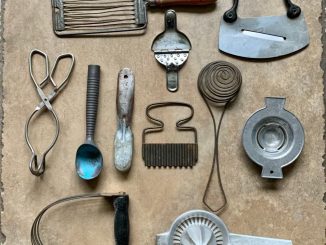The Benefits of Placing Your Mobile Phone Face Down
The orientation of your mobile phone when placed on a table may seem trivial, but it can significantly impact both the device and the user. Opting to position your phone face down when not in use offers several advantages:
1. Prevents Dust and Liquid from Damaging the Screen
Placing your phone with the screen facing up increases the likelihood of dust accumulating and adhering to the display. When cleaning, coarse dust particles may inadvertently scratch the screen or tempered glass.
Additionally, accidental spills or food particles can come into contact with the screen, potentially affecting its clarity and responsiveness. By keeping the phone face down, you reduce exposure to these risks and help maintain the display’s longevity.
2. Protects the Camera Lens from Scratches
Many modern smartphones feature protruding rear camera lenses, such as those on the iPhone 14 Pro Max. Placing the phone face up exposes the camera lenses to direct contact with the surface, increasing the risk of scratches. Scratched lenses can significantly degrade photo and video quality, affecting the overall user experience.

Some may worry about potential screen scratches when placing the phone face down. However, most smartphones today are equipped with anti-scratch coatings or tempered glass protection, minimizing this concern. In case of minor scratches, replacing the screen protector is relatively simple, whereas repairing a damaged camera lens can be more complex and costly.
To further protect your device, ensure that the table surface is clean and free from rough particles before placing your phone face down.
3. Enhances Privacy and Security
Leaving your phone face up can expose personal notifications and messages to anyone nearby. This may lead to unintended privacy breaches, especially when receiving sensitive information, such as financial alerts or confidential messages.
By placing the phone face down, you prevent others from seeing incoming notifications, thereby maintaining your privacy and security.
4. Reduces Distractions and Enhances Focus
A constantly lit screen with incoming notifications can be highly distracting, especially during work or study sessions. While notifications are useful, they can disrupt concentration and productivity.
Positioning the phone face down helps reduce distractions, allowing for better focus on tasks at hand. Alternatively, enabling Do Not Disturb mode or silencing notifications can further enhance concentration.
5. Minimizes Screen Damage in Your Pocket
When carrying your phone in a pocket, placing it face down can help prevent accidental screen damage caused by contact with keys, coins, or rough surfaces. Additionally, it reduces direct exposure to battery heat, which may cause discomfort or skin irritation.
Conclusion
Keeping your phone face down when not in use provides multiple benefits, from protecting the screen and camera to enhancing privacy and focus. Next time you set your phone down, consider flipping it over—it’s a simple habit that can make a significant difference.
If you found this information helpful, feel free to share it with friends and family!
It turns out it was all just a misunderstanding
Ever picked up something that looked like a purple sweet potato and thought, “This is going to be delicious!”—only to discover it was something entirely different? That’s exactly what happens with the purple Kudzu (scientific name: Pueraria montana var. lobata). While it might share a similar appearance to your favorite root vegetables, this climbing plant is an unsung hero in the world of traditional medicine, offering far more than just a striking purple hue.

What Is Purple Kudzu?
Purple Kudzu, a member of the pea family (Fabaceae), is a climbing vine that originates from Asia, primarily flourishing in hilly and mountainous regions. This plant, often mistaken for a root vegetable like a purple sweet potato, is prized not for its taste but for its medicinal properties.
Kudzu has been celebrated for centuries, especially in Chinese and East Asian traditional medicine. With its heart-shaped leaves, vibrant purple flowers, and large starchy roots, Kudzu stands out both visually and medicinally. Its roots are where the magic happens—packed with bioactive compounds that offer an array of health benefits.
The Surprising Benefits of Purple Kudzu
You’re probably wondering, “What makes this plant so special?” Let’s explore the ways purple Kudzu contributes to health and wellness.
1. A Natural Energy Booster
Feeling a little sluggish? Purple Kudzu has long been used as a natural remedy to enhance vitality and energy levels. Traditional medicine practitioners believe it helps invigorate the body, making it a popular choice for individuals seeking to improve stamina and fight fatigue.
2. Supports Kidney and Reproductive Health
In traditional Eastern medicine, the kidneys are considered the root of vitality. Purple Kudzu is often prescribed to strengthen kidney function and promote reproductive health. It’s thought to balance the body’s internal energy and contribute to overall wellness.
3. Joint Health and Pain Relief
Suffering from aching joints or stiffness? The anti-inflammatory properties of Kudzu roots can work wonders. It’s often used to alleviate joint pain, improve mobility, and reduce swelling—making it a natural alternative for those dealing with arthritis or related conditions.
4. Anti-Aging Powerhouse
Who doesn’t want to turn back the clock a little? Purple Kudzu is rich in antioxidants, which help combat free radicals responsible for aging. Regular use of Kudzu in teas, supplements, or decoctions can contribute to healthier skin and improved overall vitality.
5. Blood Sugar and Heart Health
Emerging research suggests that Kudzu may help regulate blood sugar levels and improve cardiovascular health. Its natural compounds, including isoflavonoids and saponins, are believed to support healthy blood flow and reduce the risk of chronic diseases.
How Is Purple Kudzu Used?
If you’re intrigued by its benefits, you might be wondering how to incorporate this versatile plant into your routine. Here are some of the most common ways to use purple Kudzu:
1. Herbal Teas
The dried roots of the purple Kudzu plant can be steeped to make a soothing tea. This traditional preparation is one of the easiest and most accessible ways to enjoy its health benefits.
2. Decoctions and Extracts
For a more concentrated dose, Kudzu roots can be boiled down into a medicinal decoction. These extracts are often used in traditional medicine to address specific health concerns.
3. Fermented Wine
In some regions, purple Kudzu is fermented into wine, combining its health benefits with a unique and flavorful beverage. This method preserves the plant’s natural compounds and offers a distinctive way to enjoy its properties.
Identifying Purple Kudzu vs. Purple Sweet Potato

Still confused about how to tell these two apart? While both might look similar at first glance, purple Kudzu has distinct characteristics that set it apart:
- Texture: Kudzu roots are often tougher and more fibrous compared to the smooth and tender texture of a purple sweet potato.
- Color: While both share a rich purple hue, Kudzu roots may have irregular color patterns, often with streaks or a lighter core.
- Taste: Purple sweet potatoes are sweet and starchy, whereas Kudzu roots are bitter and typically not consumed directly as food.
If you’re in doubt, always double-check with the vendor or do a quick taste test!
Caution: A Little Goes a Long Way
As powerful as purple Kudzu is, it’s important to use it responsibly. Overuse or improper preparation can lead to side effects, such as digestive discomfort. It’s always a good idea to consult with a healthcare professional or a trained herbalist before adding it to your regimen, especially if you’re new to herbal medicine.
Why Quality Matters
When it comes to herbal remedies, not all products are created equal. Ensure you’re purchasing high-quality purple Kudzu from trusted sources. Authenticity and purity are crucial to reaping its full benefits, so look for certifications or recommendations from reputable sellers.
The Verdict: A Medicinal Marvel in Disguise
So, the next time you mistake purple Kudzu for a sweet potato, don’t be too disappointed. What you’ve stumbled upon is a treasure trove of health benefits wrapped in a humble, unassuming root. From boosting vitality to supporting joint health and fighting the signs of aging, this plant offers more than meets the eye.
Purple Kudzu is a testament to nature’s ability to provide us with powerful, holistic remedies. By understanding its uses and potential, you can unlock a healthier, more balanced lifestyle. So, go ahead—embrace the benefits of this misunderstood marvel. You just might find it’s exactly what you’ve been looking for!



Leave a Reply